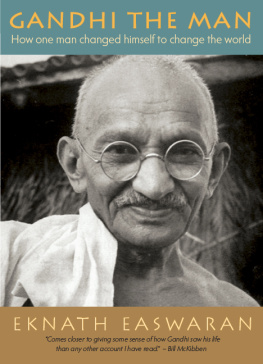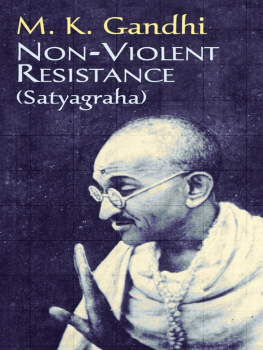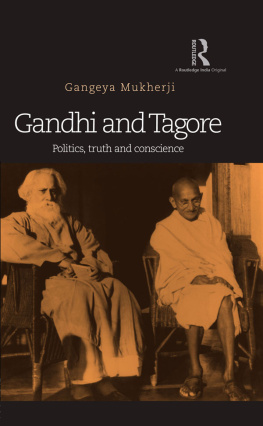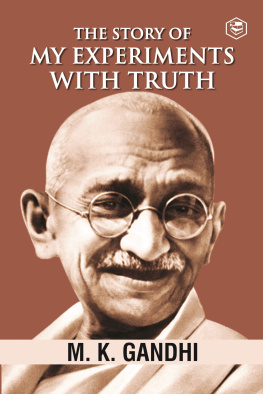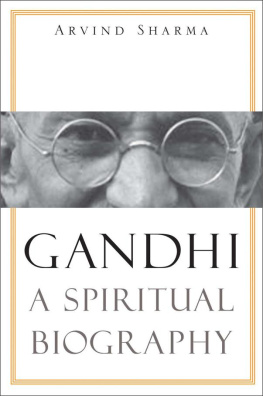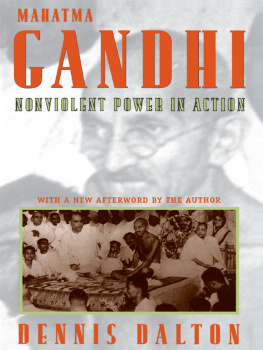Did Gandhi try his best to save Bhagat Singh from the gallows? Or was Bhagat Singh just another pawn in the complex and intricate web of imperial power politics?
The aim of this study is to understand and explain why Mahatma Gandhi, the most influential political leader of his time in India, could not save Bhagat Singh, when he was negotiating a settlement of political questions with the Viceroy Lord Irwin during February-March 1931. Gandhi's critics accuse him of failing, mainly owing to his stern commitment to non-violence, while his party men and followers defend him, and attribute his failure to the events that took place beyond his reckoning.
Generally, scholars assume that the issue of the commutation of Bhagat Singh's death sentence could have been settled by Irwin and Gandhi if they had acted with prudence and some compassion. This assumption, so stridently bruited in historical works, is challenged in this study. Using a wide range of historical materials, V.N. Datta examines with sensitivity and critical discernment, the tragic episode of Bhagat Singh's death sentence from a new perspective by analysing it against the background of the political climate of the times, the role of Irwin and Gandhi, the pressure of public opinion, and the working of the British imperial system. This work further provides insights into the manner of political thought of the period, on the nature of political activity and the state of society that lay captive under foreign rule.
GANDHI
AND
BHAGAT SINGH
Copyright V.N. Datta 2008
Published 2008 by
7/16, Ansari Road, Daryaganj,
New Delhi 110 002
Sales Centres:
Allahabad Bangalooru Chandigarh Chennai
Hyderabad Jaipur Kathmandu
Kolkata Mumbai Pune
All rights reserved.
No part of this publication may be reproduced, stored in a retrieval system, or transmitted, in any form or by any means, electronic, mechanical, photocopying, recording or otherwise, without the prior permission of the author.
The author asserts the moral right to be identified as the author of this work.
Typeset in 11.5 pts SimonciniGaramond
Mindways Design
1410 Chiranjiv Tower
43 Nehru Place
New Delhi 110 019
Printed in India by
Saurabh Printers Pvt Ltd
A-16, Sector-IV
Noida 201 301
Twenty days before he was hanged in Central Jail, Lahore on 23 March 1931, Bhagat Singh, then twenty-three years, quoted the following Urdu verse to his younger brother Kultar Singh:
Khush raho ahle watan hum to safar karte hain
Farewell, my countrymen, we are at journey's end.
WAJID ALI SHAH
Contents
Chronological Table
1907 | Birth of Bhagat Singh. |
1918, May | Joined D.A.V. School, Lahore. |
1921 | Left D.A.V. School before completing his matriculation examination. Joined National College, Lahore. |
1924 | Left National College, being pressed by parents to marry. Went to Kanpur and joined Ganeshshankar Vidyarathi's paper, Pratap as Balwant. Taught at the National School in Shadipur village, District Aligarh (UP). Attended the Congress session at Belgam. |
1925 | Returned to Lahore on his grandmother's illness. Warrants issued against him in connection with the Akali Jatha reception accorded during the Jaitu Morcha. Worked for Arjun, published from Delhi. Returned to Punjab, worked for Akali, an Urdu paper published from Amritsar, also wrote articles for Kirti, a Punjabi journal, advocating the cause of workers and peasants. |
9 August | Kakori incident in which the ten revolutionaries under the overall command of Ramprasad Bismal absconded with Rs 4,679. |
1926 | Founded the Naujawan Bharat Sabha with others. Worked as its general secretary. |
1927 | Implicated in connection with the Dussehra bomb outrage. Falsely, arrested and released on a security bond of Rs 60,000. |
1928 | Organised the Lahore Students Union, attended the meeting of the Hindustan Republican Association (HRA) at Ferozeshah Kotla ground, Delhi; the HRA renamed as the Hindustan Socialist Republican Association (HSRA) at Bhagat Singh's suggestion. |
30 October | Lala Lajpat Rai assaulted by lathi charge while leading the anti-Simon procession at Lahore. |
17 November | Lala Lajpat Rai dies. |
17 December | Took part in the murder of Assistant Superintendent of Police J.P. Saunders near the police headquarters, Lahore at 4 pm, Escaped to Calcutta. |
1929, 8 April | Two bombs and leaflets thrown into the Central Assembly Delhi at 12.30 pm, courted arrest with B.K. Dutt. |
7 May | Trial on the Assembly Bomb Case began in the Court of the Additional District Magistrate F.B. Pool. |
6 June | Statement made before the Sessions Judge Leonard Middleton when regular trial began. |
12 June | Judgement pronounced on the Assembly Case, and sentenced to transportation for life. |
15 June | Hunger strike for better facilities in Delhi jail. |
10 July | Trial in the Lahore Conspiracy Case before the special Magistrate R.S. Krishan. |
13 September | Jatindra Nath Das died after sixty-three days of hunger strike. |
| 1930, 1 May | A Special Tribunal was set up under the Lahore Conspiracy Ordinance to try the culprits involved in the case. |
20 June | The Tribunal reconstituted. |
7 October | Judgement in the Lahore Conspiracy Case pronounced. Death sentence awarded. |
| 1931 | Defence Counsel submitted a petition to the Privy Council which was rejected on 27 February. |
23 March | Hanged in Lahore Central Jail at 7.30 pm. |
Preface
This work is a revised and enlarged version of the keynote address delivered at the International conference held on 'Bhagat Singh and His Times' at the ICCSR complex in Punjab University, Chandigarh, from 27 to 30 September 2007. The conference was organised under the auspices of the Indian Council of Historical Research and the Institute of Punjab Studies.
This year marks the birth centenary of Bhagat Singh and the seventy-fifth year of his execution. Bhagat Singh was hanged in the Central Jail in Lahore on 23 March 1931 at 7.30 pm. A number of books have been published in 2007 relating to his role in the national movement. His own writings and what his contemporaries and others wrote on him have also been published. The present study belongs to a different categoryit focuses on a single issue: Mahatma Gandhi's attitude to Bhagat Singh's trial and execution. Most historical narratives discuss or refer to Gandhi's reactions on Bhagat Singh's trial and execution. When Bhagat Singh and his comrades were tried and hanged, Gandhi by then had emerged as the most influential political leader with a mass following in the country. He was loved and respected for his moral integrity and practical sagacity.
Next page
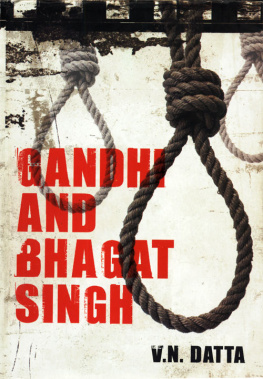
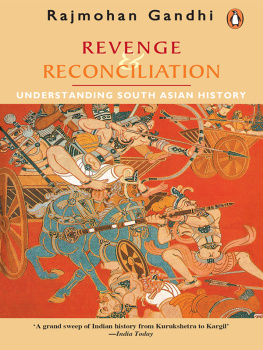
![Gandhi - Gandhi: [the true man behind modern India]](/uploads/posts/book/175484/thumbs/gandhi-gandhi-the-true-man-behind-modern-india.jpg)
